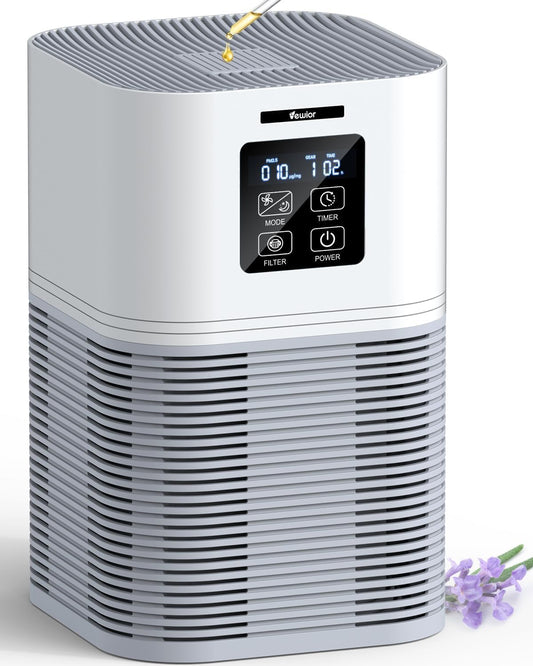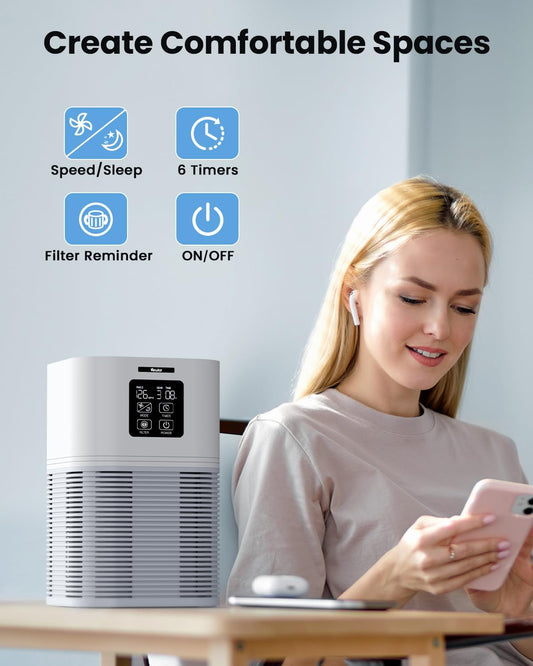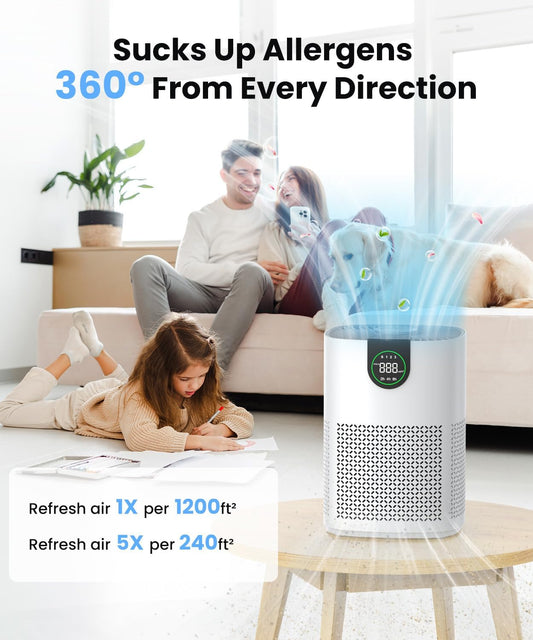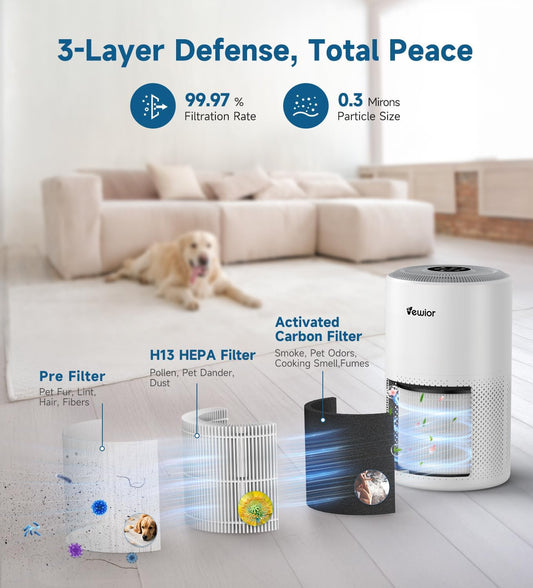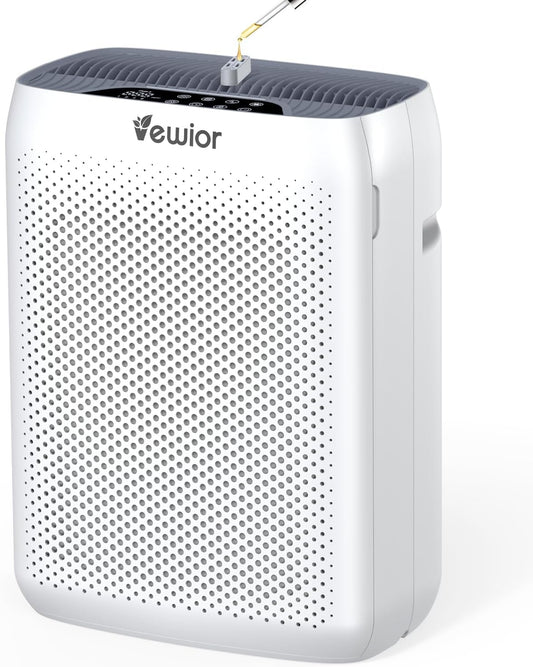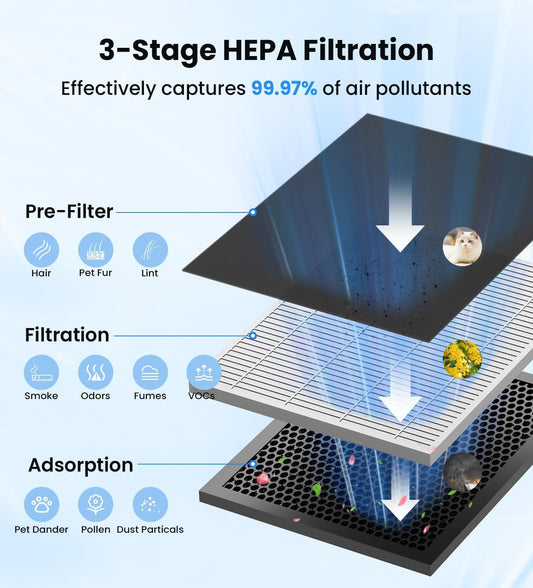Air purifiers have gained popularity as an effective solution for improving indoor air quality. However, a common concern that arises is whether air purifiers produce ozone, a gas that can have harmful effects on human health. In this article, we will debunk the myth surrounding air purifiers and ozone production. We will explore the different types of air purifiers, their ozone generation potential, and how to ensure the safety of the air purifiers you choose. Understanding the facts about air purifiers and ozone will help you make an informed decision and create a healthier environment for you and your family.
Understanding Ozone and its Health Impact
Ozone is a gas composed of three oxygen atoms (O3). It occurs naturally in the atmosphere and is essential for protecting us from the sun's harmful ultraviolet (UV) radiation. However, at ground level, ozone can be harmful when inhaled in high concentrations.
Exposure to elevated levels of ozone can lead to various health issues, including respiratory problems, chest pain, coughing, throat irritation, and worsened asthma symptoms. Prolonged and significant exposure to ozone can even cause long-term damage to the lungs.
Different Types of Air Purifiers and Ozone Generation
- Mechanical Filtration Air Purifiers: Mechanical air purifiers, such as high-efficiency particulate air (HEPA) filters, work by trapping airborne particles. These types of air purifiers do not produce ozone as they do not generate any chemical reactions.
- Electronic Air Purifiers: Electronic air purifiers, such as electrostatic precipitators and ionizers, use electrical charges to attract and capture particles. While these devices can effectively remove airborne contaminants, some electronic air purifiers produce small amounts of ozone as a byproduct. However, the ozone levels produced by reputable electronic air purifiers are typically well below the safety limits set by regulatory agencies.
- Ozone Generators: Unlike other air purifiers, ozone generators intentionally produce ozone as their primary mechanism to clean the air. These devices are not typically recommended for residential use, as they can generate high levels of ozone that may exceed safe limits.
Ensuring Air Purifier Safety
To ensure the safety of air purifiers and minimize ozone exposure, consider the following guidelines:
- Choose Certified Air Purifiers: Look for air purifiers that are certified by reputable organizations such as the California Air Resources Board (CARB) or the Association of Home Appliance Manufacturers (AHAM). These certifications ensure that the air purifiers meet strict safety and performance standards.
- Read Product Specifications: Before purchasing an air purifier, carefully read the product specifications and information provided by the manufacturer. Look for clear statements regarding ozone production. Reputable manufacturers will provide information on ozone levels and compliance with safety standards.
- Avoid Ozone Generators: As mentioned earlier, ozone generators intentionally produce ozone and are not recommended for residential use. It is best to choose air purifiers that rely on other mechanisms, such as mechanical filtration or electronic purification, to clean the air.
- Follow Manufacturer's Instructions: To ensure optimal safety and performance, always follow the manufacturer's instructions for operating and maintaining your air purifier. This includes regular filter replacement and cleaning, as recommended by the manufacturer.
- Ventilation and Air Circulation: Proper ventilation is essential when using any type of air purifier. Ensure that your indoor space has adequate ventilation to allow for the dispersion of any ozone that may be present. Opening windows or using exhaust fans can help improve air circulation and reduce ozone buildup.
Conclusion
While some air purifiers may produce ozone as a byproduct, the majority of air purifiers on the market, especially those with mechanical filtration or electronic purification mechanisms, do not produce ozone at levels that pose a health risk. It is crucial to choose certified air purifiers, read product specifications, and avoid ozone generators to ensure the safety of your indoor environment.Breathe easy and create a healthier living environment with an air purifier that prioritizes safety and effective air purification.


